What if every Kentucky Basketball coach were a Power Ranger?
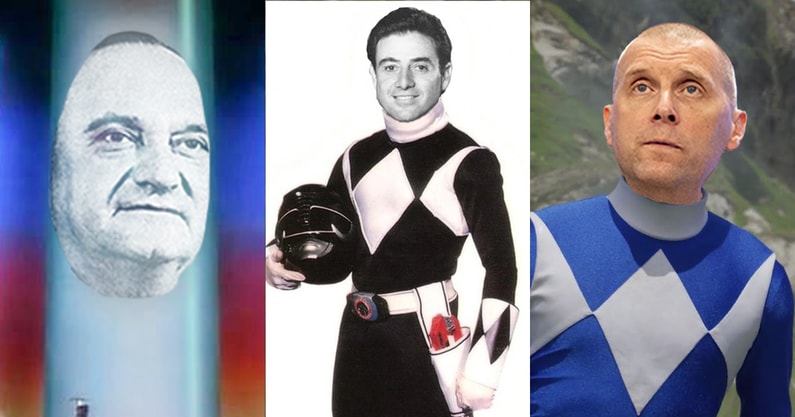
Joshua Moore is a Kentucky-based writer and the author of “Morphenomenal: How the Power Rangers Conquered the World.” It comes out May 20. Click here to pre-order.
Power Rangers, a children’s television show that started in 1993, has far more in common with the greatest college men’s basketball program than you might think.
New morpher-wielding teenagers show up with the same frequency on Power Rangers as ballyhooed recruits and transfer-portal acquisitions show up at the University of Kentucky – and are subject to the same level of praise and scrutiny from a fandom with lofty expectations. Blue is a staple in their wardrobes. Checkerboard-wearing dolts have tried to thwart both. Their fan bases sometimes get a little too rowdy on Twitter. You can have a healthy debate as to whether both peaked in the 1990s.
The sport of basketball is a natural parallel for Power Rangers: both feature five core team members and a “sixth man” who often plays a pivotal role in their success. The frantic-but-flowing rhythm of a well-played (and well-officiated) basketball game gives off the same energy as the rampant action in a standard 22-minute Power Rangers episode. The sport’s best-performing stars increasingly hail from across the pond; Power Rangers wouldn’t have become a phenomenon without the use of foreign footage.
I loved Power Rangers before I loved UK basketball; despite my mom’s best efforts while growing up in Eastern Kentucky, I was a late adoptee to the latter. Before high school, I couldn’t tell you much at all about any sport; now I write about them. Today, it’s impossible for me to imagine a life without hoops or Zords.
Those affinities also begged me to wonder something I’m certain has crossed your mind, dear reader: what would the original Mighty Morphin Power Rangers cast look like if it were assembled from UK men’s basketball coaches?
Adolph Rupp – Zordon
The Baron of the Bluegrass needs no introduction. UK basketball doesn’t exist without Adolph Rupp, nor do the Power Rangers exist without Zordon of Eltar, the wizard/warrior trapped in an interdimensional time warp by the villainous Rita Repulsa.
Discipline was a foundational tenet for both – Zordon’s rules of engagement with the forces of evil required the same kind of focus and willingness to resist temptation displayed by the likes of Wah Wah Jones and Louie Dampier. Like Rupp, who recruited about 80 percent of his players from within Kentucky, Zordon also had an affinity for local talent; the original five Power Rangers were all plucked from a juice bar in nearby Angel Grove.
I’d be remiss not to acknowledge the pair-binding elephant in the room here: both have been widely accused of racism. At least Rupp tried to recruit non-white players; Zordon seemed not to blink an eye at the optics of putting a Black man in black spandex and a Vietnamese American in yellow spandex. As folks say, it was a different time.
John Mauer – Alpha 5
Alpha 5 and his similar successors often go unsung despite their ability to keep things running smoothly in the background. In turn, John Mauer might be the most notable UK coach you’ve never talked about.
He wasn’t the first nor the winningest before Rupp’s vaunted run, but the 15th head coach of the men’s basketball program was responsible for the school’s best season prior to Rupp. His 1929-30 Wildcats went 16-3 with a 9-1 record in the Southern Conference, matching what would be Rupp’s best record in that conference prior to UK’s movement to the SEC. The man after whom Rupp Arena is named inherited the program following Mauer’s departure for Miami (Ohio); the then-Redskins offered a better salary.
Mauer’s Miami teams struggled, but like Alpha units always do, he found a way to reclaim glory. He ended up at Tennessee (boooooo), where he won two SEC championships and reached the NIT quarterfinals in 1945 when that was something to celebrate (and it remains, remarkably, one of the Volunteers’ marquee achievements). He also worked as UT’s head baseball coach and as a football assistant under Robert Neyland. Mauer also later coached at Army and Florida.
While he led the Vols to some of their best seasons, he also stayed blue at the core: Mauer’s Tennessee teams lost to Kentucky 22 times, good for 13.4 percent of that program’s 163 defeats to UK.
Bonus: Did you know UK had a head coach named Alpha? From 1913-1915, Alpha Brumage guided the Wildcats to a 19-7 record. He was the first coach in program history to win double-digit games in a season.
Rick Pitino – Zack Taylor
Zack the Black Ranger is indisputably the coolest of the original Power Rangers, and Rick Pitino was the coolest to ever come through Lexington. Sorry Cal, but it’s a lot easier to imagine Pitino attempting Hip-Hop Kido and not looking like a complete buffoon (the line is thin, though).
An off-screen contract dispute ushered Zack’s early exit from the show (along with two others), and an impossible-to-turn-down contract offer lured Pitino away from Camelot. In hindsight, Walter Jones (Zack’s actor) and Pitino might have rather stuck around a little longer. (Though Jones’ turn on the Nickelodeon series Space Cases was much better than Pitino’s with the Celtics.)
Zack’s got a thing for short flings: his girlfriend, Angela, appears sparingly in just eight episodes and none after season one. Something tells me Pitino could get down with that.
Eddie Sutton – Tommy Oliver
Excitement leading into Sutton’s first season at Kentucky gave way to a 32-win season and an Elite Eight finish, but admitted alcohol issues and a recruiting scandal shortened a turbulent tenure in the Bluegrass.
Plot contrivances were Tommy Oliver’s poison: after a thrilling introduction to kids across America – 10s of millions watched the new Green Ranger decimate the original Power Rangers over the course of a five-part miniseries, “Green With Evil” – the character became just a step or two above window dressing for most of the next 60-ish episodes, losing his powers multiple times and seldom looking as formidable as he did when he was kicking the other Power Rangers’ asses.
Eventually, Tommy returned to form as the White Ranger and the show made up for shaky screen time by christening him as the team’s new leader, a mantle he’d hold for parts of four seasons – longer than any Power Ranger ever. Sutton had his own homecoming at Oklahoma State to affirm what became a Hall of Fame career. He even cameoed elsewhere for a season following his retirement, as Tommy often did later in the show’s run.
Top 10
- 1
ESPN direct to consumer
Bundle price revealed
- 2
Bill Belichick
Addresses Jordon Hudson drama
- 3New
Boogie Fland
Withdraws from NBA Draft, enters portal
- 4
Illinois extensions
Bielema, Underwood get new deals
- 5Hot
Livvy Dunne
SI Swimsuit Cover revealed
Get the On3 Top 10 to your inbox every morning
By clicking "Subscribe to Newsletter", I agree to On3's Privacy Notice, Terms, and use of my personal information described therein.
Whether it’s hoops or herodom, the love of the game runs deep.
John Calipari – Kimberly Hart
The first crush of many pre-adolescents eventually broke Tommy’s heart, and so too did Calipari ours. But man, what a great time.
My first year as a student at the University of Kentucky coincided with that of John Wall and DeMarcus Cousins, who spearheaded a team that made Kentucky the epicenter of modern college basketball in a way it really never had been. I still think we undervalue how many people outside of our state fell in love with Kentucky because of that 2009-2010 team, and by extension, John Calipari.
Kimberly absolutely had the same impact for Mighty Morphin Power Rangers. Your older brother who might think he’s too cool for the show would watch because of the beautiful brunette in pink leggings. Your sister who doesn’t care for all the punching and kicking loved that she did gymnastics or talked about going to the mall – and got incredibly jealous when she made out with Tommy.
Her leave was far smoother than Calipari’s, but the impact of each extended into the months ahead. Actress Amy Jo Johnson left the show on good terms, and a season later, Kimberly pens a “Dear John” letter to Tommy. Calipari delivered his own version on Feb. 1, and the wound still feels fresh, but in time, we’ll appreciate the good times more than the demise.
Mark Pope – Billy Cranston
On the surface, this is the easiest comp: Billy’s by far the nerdiest of the original Power Rangers and Pope’s the nerdiest head coach not just in Kentucky basketball history, but all of UK sports.
But their thread goes much deeper. Over the course of three-and-a-half seasons, Billy undergoes the most character development of any original Power Ranger. The suspender-clad dork who often required the on-demand translation services of teammate Trini and often felt extraneous to the group transforms into its most confident hero, so much so that he becomes the first Ranger to give up their morpher but remain part of the team.
Billy realized he could help save the world through different means, and Mark Pope realized he could make a difference in people’s lives away from the operating table. Pope famously gave up the possibility of becoming an orthopaedic surgeon to coach basketball, opting to use his smarts to do things like forcing Cooper Flagg into an uncomfortable position during a late-game situation. If that’s not heroic, I don’t know what is.
Tubby Smith – Trini Kwan
Speaking of Trini, the most tender and caring of the original Power Rangers seems the best fit for Tubby Smith, a man who in recent years is getting more and more of the flowers due his direction.
It’s impossible to imagine Trini ever treating another life form – person, pet, plant – with anything but overt respect, and the same goes for Smith. A sour-turned-sweet interaction between Smith and a student reporter, recounted by Jerry Tipton in 2022, is emblematic of the man he is.
Like Jason and Zack, Trini left the show abruptly but under the guise of continued good-deeding: the trio, whose actors left following a brief strike, are shipped off to a Peace Conference. Smith’s own departure from Kentucky for Minnesota was a bit more foreseeable, but no less seismic. And his words to Tipton in 2013 about that move are the kind that might’ve been said by some disgruntled actors in 1994. “You don’t want to be where you’re tolerated, but where you’re celebrated.”
Joe B. Hall – Jason Scott
While Adolph Rupp laid the groundwork for Kentucky basketball, I’d argue that it’s really Joe B. Hall who truly set the standard for what it can and should be. That’s what Jason did for all the Red Rangers who followed in his footsteps.
A determinedness to:
- take the reins from a man who was forced to retire;
- forcefully and happily integrate the team after your predecessor struggled to do so;
- still win a ton of basketball games
not only requires bravery, but also a touch of foolhardiness, a common trait among Red Rangers. In the first episode of Mighty Morphin Power Rangers, in their initial encounter with Zordon, Jason is the only one of the original Rangers-to-be who doesn’t immediately brush off the idea that they could actually be superheroes. It’s not a surprise at all when he’s the one who finally motivates his teammates to morph for the first time.
Jason Scott absolutely would’ve said, “Yes” if asked to replace his own head coach under less-than-ideal circumstances, just as much as Hall would’ve said “yes” to saving the world – as long as he could still check in at Wheeler Pharmacy between battles.
Billy Gillispie – Farkas “Bulk” Bulkmeier
Even Kentucky basketball has to have some comic relief.

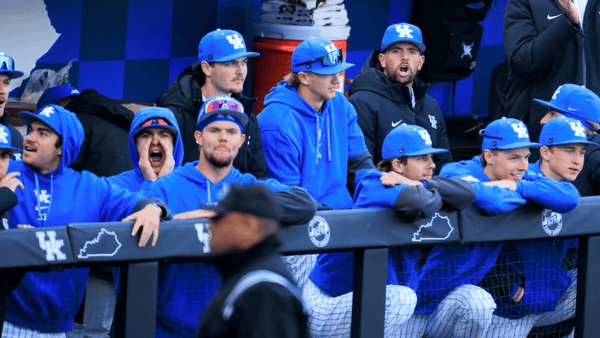

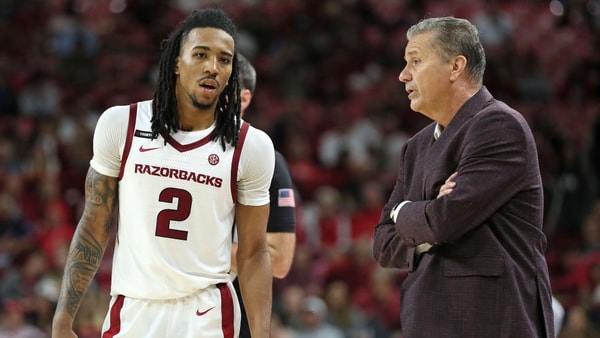
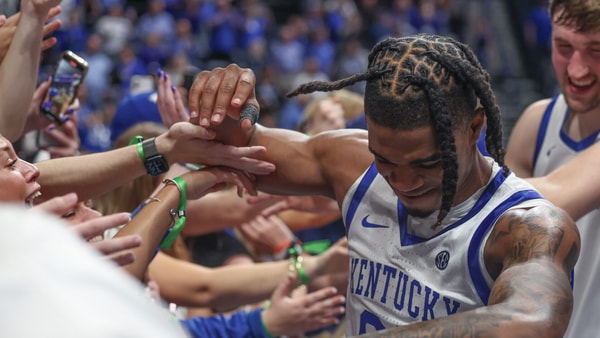
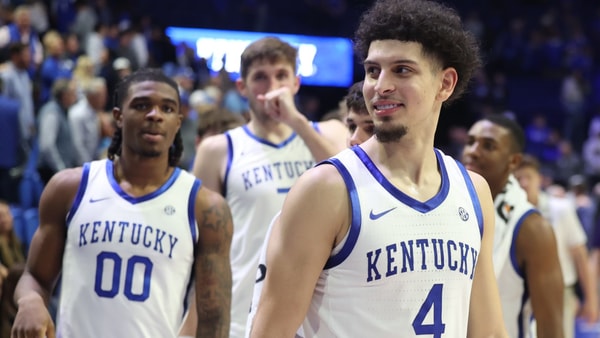
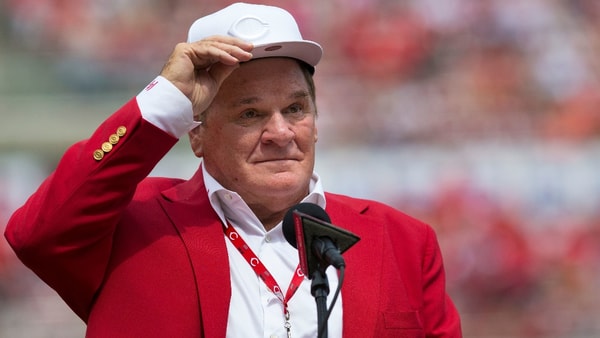
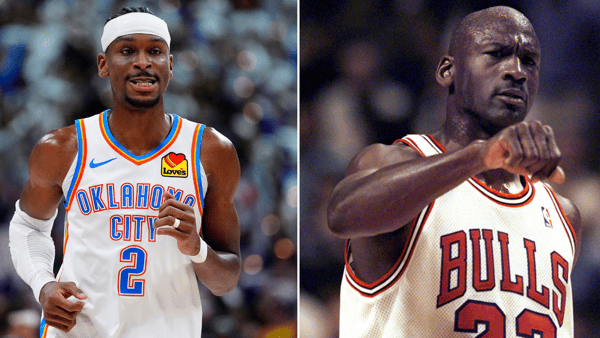
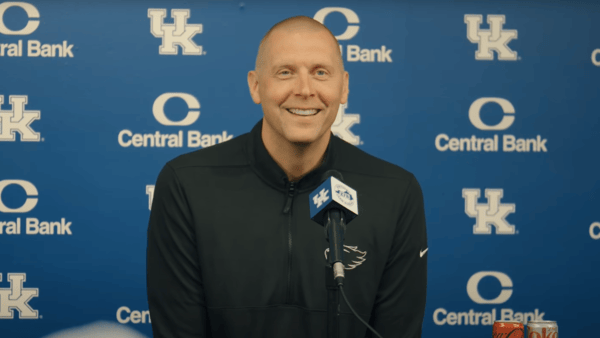
Discuss This Article
Comments have moved.
Join the conversation and talk about this article and all things Kentucky Sports in the new KSR Message Board.
KSBoard